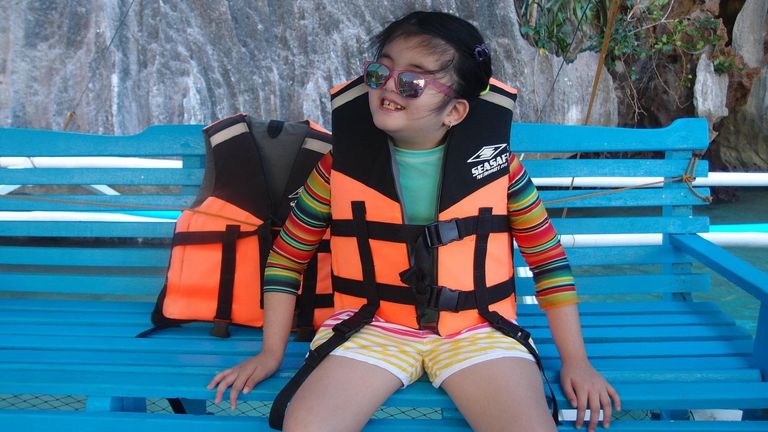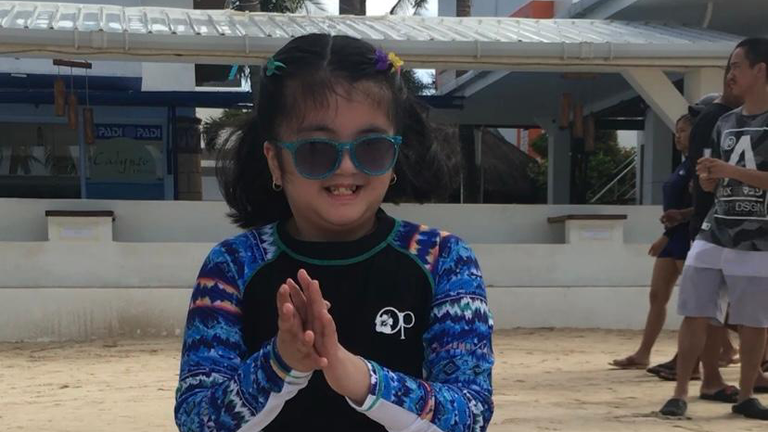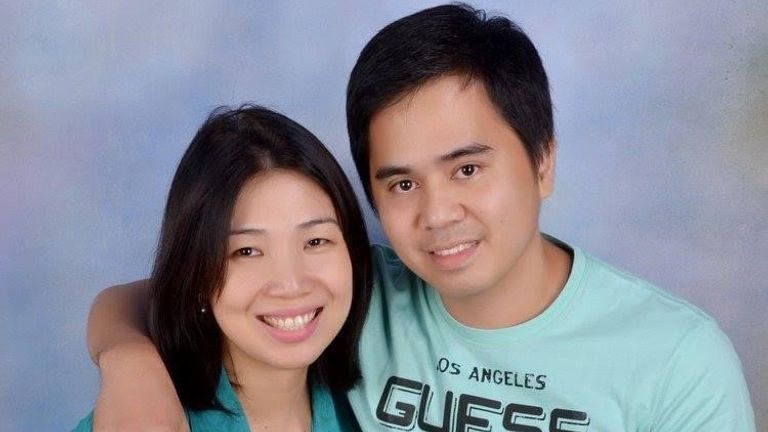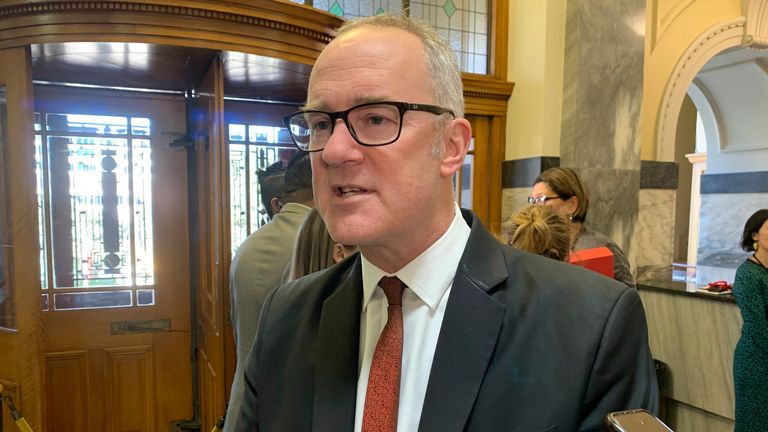[ad_1]
A 12-year-old autistic girl has been barred from moving to New Zealand – and being reunited with her family – because the country’s immigration policies reject people with disabilities or illnesses which may burden the health system.
Arianna Alfonzo has been living with her mother in the Philippines while her father, Allan, lives and works in Christchurch, where he has a carpet-laying business.
Both he and Arianna’s mother, Lorigail, have permanent residency status in New Zealand.
But their daughter was first denied a visa in 2017 after she was deemed not to have met the “acceptable standards of health”, an immigration policy that considers whether a person would cost New Zealand more than $41,000 (£23,170) over five years.
As a result, the family has missed spending birthdays and Christmases together, with Arianna separated from her father for half her young life.
The Alfonzo family has since spent thousands on legal fees but the only way Arianna can enter the country and be reunited with her father is if she is given a medical waiver.
Mrs Alfonzo told Sky News Arianna’s autism was a “blessing” to the family, describing her as a “happy” child with an “infectious” smile, who loves to explore beaches.
“It is heart-breaking for us as a family because children like Arianna must be treated equal and fair,” she said.
“Children with disabilities need to be loved and accepted so they can also see their value as a human being in society.”
The family is now petitioning the Associate Minister of Immigration, Phil Twyford, in a bid to get Arianna a medical exemption.
Last month, Mr Twyford’s office wrote a four-sentence letter to the family in which he said: “I have carefully considered your representations. I advise I am not prepared to intervene in this case.”
Mrs Alfonzo said her daughter deserves to live somewhere she can be treated with “dignity”.
She said: “It is a better life for us, a clean environment, and a very peaceful country for us to live in.”
Green Party MP Ricard Menedez has been working with the family to get Arianna entry into the country and to change the government’s “ableist” and “dehumanising” policy.
“Disabled & neurodivergent migrants shouldn’t have to go through dehumanising processes of individual appeals to prove their humanity and have their human rights recognised. This is why we’re working with @endashnow + others to end the ableist acceptable standards of health policy,” he wrote on Twitter.
Under New Zealand’s immigration guidelines, the “acceptable standards of health” also exclude people on dialysis, those with severe haemophilia, anyone that requires full-time care, those intending to give birth in the country, and neurological disorders (including Alzheimer’s and Parkinson’s), among others.
The case is also being championed by Juliana Carvalho, a disabilities advocate who had her New Zealand residency denied twice because she has lupus and is paraplegic. She has since been granted the right to remain in New Zealand but is now campaigning to change the policy.
“I really need you to take action,” she wrote on Facebook.
“Put yourself in this family’s shoes. Feel their pain of being separated. Feel their hope of being reunited. Feel their sorrow of being unfairly harmed. Feel their strength to fight for change, for a chance.”
Mr Twyford has been approached for comment. However, a spokesperson for the associate minister told the New Zealand Herald he would not discuss individual cases.
In March, the government said it would not be reviewing its immigration policy.
[ad_2]
Source link













